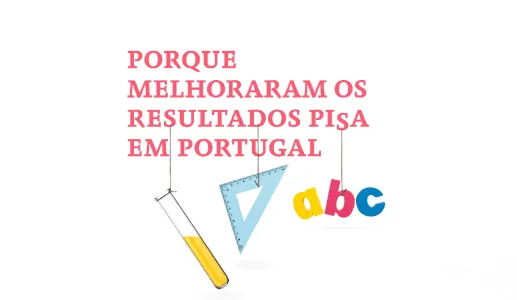
Education under scrutiny
Find out about the results of the aQeduto project: assessment, quality and equity in education, a joint initiative between the National Education Council and Fundação Francisco Manuel dos Santos that began in December 2015. The aim of the project was to contribute to public debate, based on scientific evidence, in the field of education, and it looked at statistical information from PISA – Programme for International Student Assessment (2000, 2003, 2006, 2009, 2012 and 2015).
The interpretation of these results allowed for a more in-depth analysis of the Portuguese education system and its position internationally, especially when combined with the data from the context questionnaires. Based on the information available, we tried to explain the variation in the results of Portuguese students in the PISA tests, and which factors are responsible for the positive developments seen in Portugal over the last fifteen years:
- The role of changes in the social, economic, cultural, behavioural and motivational conditions of students and families
- The role of changes in school organisation;
- The role of variations in the country's economic and social conditions.
As well as the results of Portuguese students in the PISA tests, you can also find out more about:
- Who these students are and what they think;
- Their family background;
- Their socioeconomic situation;
- The scale and impact of school failure, as well as possible ways of combating it;
- The profile of Portuguese teachers;
- Measures with positive and negative impacts on a school;
- Political reforms in education and their impact;
as well as many other fundamental aspects of education in Portugal. By making you aware of the results of this project and the study «Why Have PISA Results Improved in Portugal?» coordinated by Ana Sousa Ferreira, Isabel Flores and Teresa Casas-Novas, FFMS seeks to contribute not only to what is known about the reality of Portuguese education but also to the quality of public debate about the future of the sector and the country.





